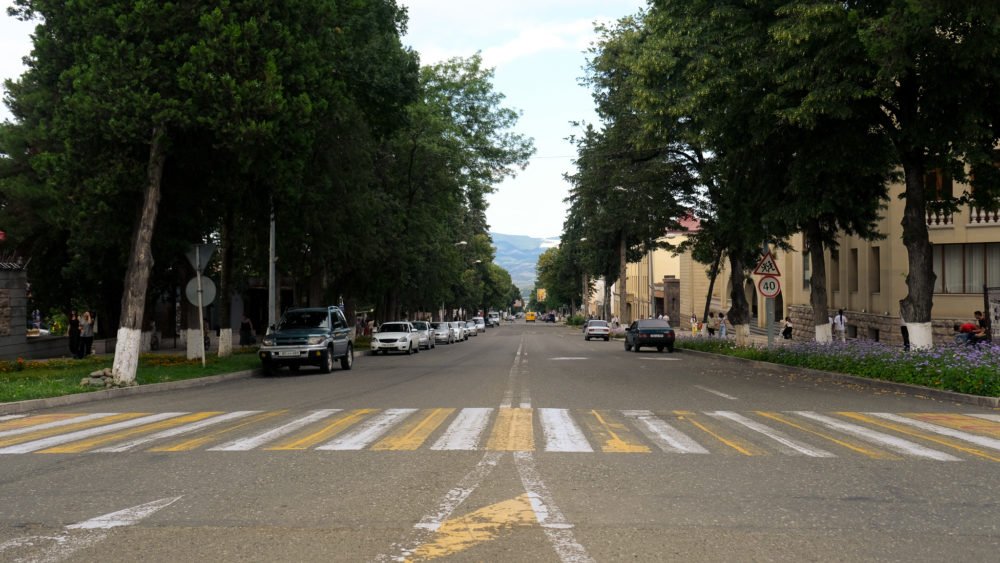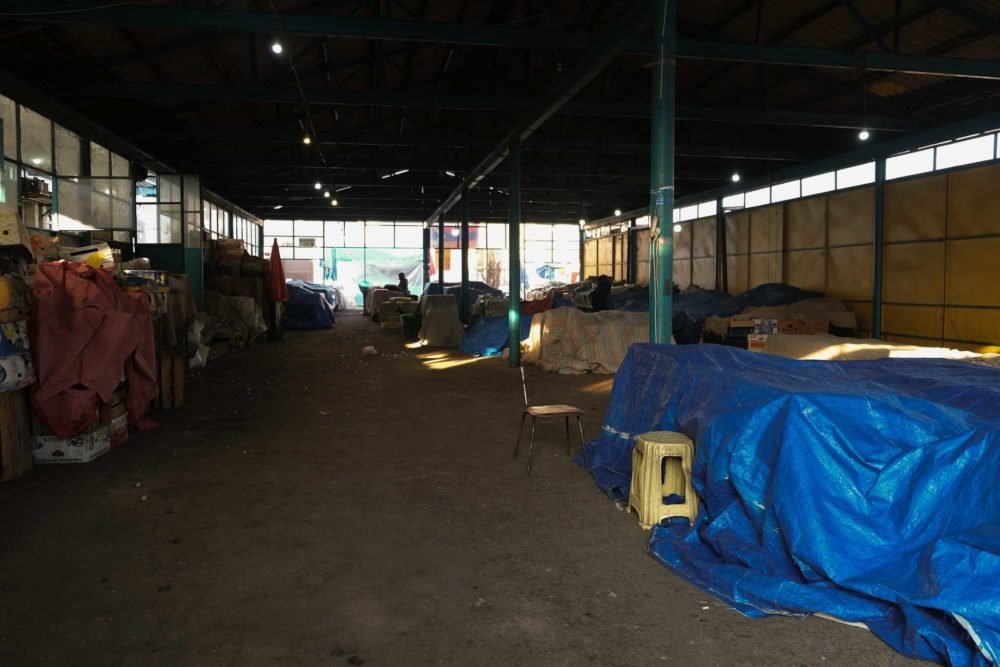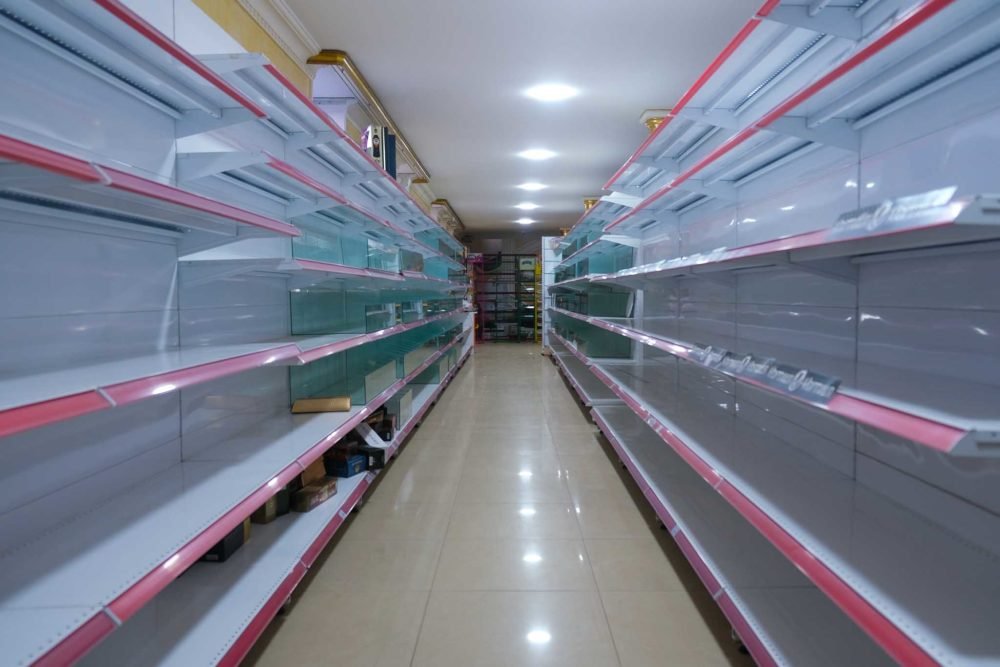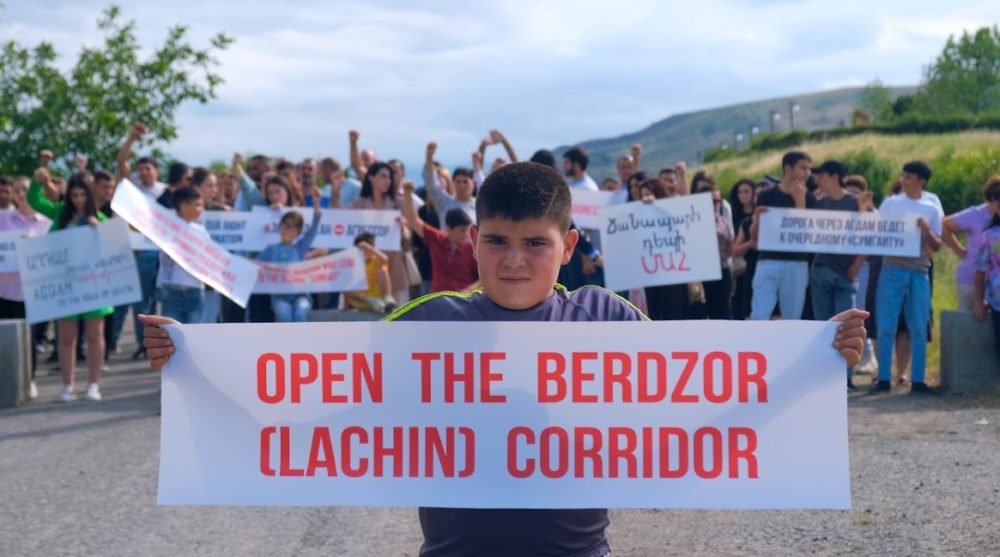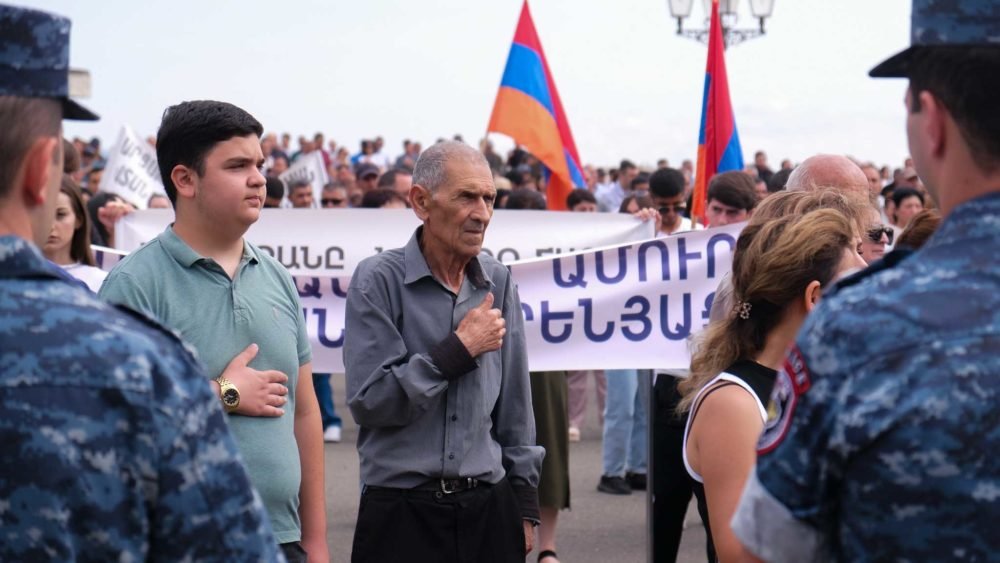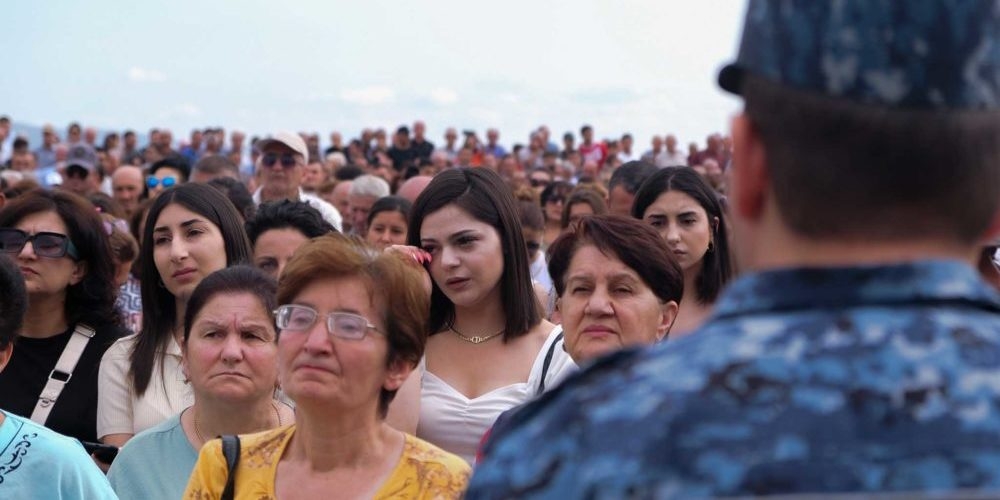
It’s early in the morning, 32 degrees outside. You know you should hurry to the bakery to get a piece of bread, otherwise you might have to stand there for hours, and the bread might sell out for today: yesterday one of your neighbors lost consciousness after standing in an overcrowded, irregular line for several hours. You open the fridge to check what food is left. Yesterday you and your family ate the last vegetable your relatives brought from the village a week ago. You check the freezer, it’s also empty. Well, there is still some pasta left in the drawers. You will cook it today, again. Your kids have been asking for sweets, but there is nothing left in the markets nearby; all the groceries are empty, many of them have been closed for some weeks now. You have heard there are some watermelons in one of the green-groceries in another district of the city. But the public transport has stopped working, and it’s a 40 minute walk, besides, you should stand in the line for the bread. You take your purse and go out. Normally, you would drink your morning coffee before leaving the house, but there is no electricity to make coffee, and even if there was, you have no coffee left.
This is how an ordinary day in July starts for an average family in the break-away Nagorno Karabakh region that has been under siege for seven months, since December 12, 2022.
In the first months of the blockade there were tracks of Red Cross and Russian Peacekeepers crossing the Lachin Corridor, bringing humanitarian aid from Armenia to Nagorno Karabakh. However, since June 15, any movement to the region has been banned, leaving an estimated 120,000 people without food, medicine, and essential goods. The gas supply to Nagorno Karabakh has been cut off as well for several months now.
“…People came back [to Nagorno Karabakh, after the war in 2020] and got stuck in a limited space, the enemy is there from all the sides, the only road connecting to the world is closed… We are not criminals that should be sentenced to imprisonment. Will anyone ever answer for the merciless violation of the rights of innocent people? There will always be something to eat, but what about our freedom?” Anush Shahramanyan, 30, a lawyer from Stepanakert, Nagorno Karabakh, wrote on her Facebook page on July 16.
Two days later, on July 18, the public transportation stopped working in Stepanakert, the capital of Nagorno Karabakh, because of the region-wide lack of fuel, making that “limited space” even more limited. Moving around the city, going to work, returning home, taking children to kindergarten, going to a hospital, etc., became much more difficult.
“During all these months of blockade, this is the hardest period for us, considering the lack of food, fuel, and the rising depression,” says Anush, who has recently been participating in demonstrations along with dozens of thousands of people, demanding to “Unblock the road of life.” The protests were organized by the de facto Minister of State in Nagorno Karabakh. Anush says people were waiting for such an announcement, to go out and voice their protest against international actors, Russian Peacekeepers, the government of Armenia, and of course Azerbaijani authorities. “This was a civic action, but it also felt like “the last action.” As the authorities of Artsakh are the organizers of the protest, it feels like if these protests also don’t get any attention, people will lose any hope they had”.
Shahramanyan is a defender with a court case in Yerevan that she has been postponing for months already, each time hoping that when the new date comes, the roads will be open and she will be able to go to the court to protect her client’s rights. “This blockade affects my work too. This is the hardest part for me, that we are unable to move. It is like an island, we are trapped in the island, we try to organize our days in a way to divert our thoughts from the situation we live in.”
But the shortage of food and the effects it has on people’s everyday lives makes it harder to divert thoughts from the blockade. Nagorno Karabakh’s grocery stores and supermarkets have been practically empty since the beginning of July. An official announcement was made following this to prevent cooking oil, which is about to sell out, from being distributed to anyone other than families with children. “They told people to come with their own containers and with the birth certificates of their children to get 0.5 liters of oil for their family,” Shahramanyan said.
While in the regions surrounding the capital one can still find dairy products as well as some fruits and vegetables, it is practically impossible to distribute some of it to the city; due to the lack of fuel, the connection between Stepanakert and the regions became a huge problem. People’s jobs are also affected by this. Many workers who used to commute daily to the capital are now unable attend work or take their children to kindergarten.
Anush’s mother, Hasmik Kaghramanyan, 63, works as a pediatrician in the regional hospital of Jartar city, situated 78 km from Stepanakert. Due to the lack of fuel, it is almost impossible to take the children to the capital for treatment, so they are doing everything in their power to avoid having to use fuel that almost doesn’t exist. “The shortage of fuel and the lack of transportation affects us very heavily. We need to send people for analysis, but the medical materials which we need for that do not exist anymore. We started treating patients as they were doing centuries ago, we are far from modern medicine now.”
Hasmik says the only thing that will keep their hopes up is to know that people talk about Nagorno Karabakh, and do not forget about them. “Once, when the internet and mobile connection went off too, and there was also no gas and electricity already, the panic started here: we thought that this is it, tomorrow the massacres will start,” she laughs through the horror of these thoughts. “Well, these kinds of thoughts come and go,” she says.
Tatevik Khachatryan, a 29 year old journalist from Stepanakert, says the word that the Azerbaijani authorities are using, “integration,” and the steps that they are taking completely contradict each other: “Integration” is when you don’t even notice how you appear from one reality to the other, it demands years of work and dedication to the process. But if instead of letting the villagers work to cultivate the soil, you go and shoot at them, they would hardly want to integrate into your society. If instead of suggesting something to people, you deprive them of their elementary needs: food, gas, light, and so on, it is hardly possible that these people will stop being terrified of you and your type or will start seeing you as a normal country which they can find a common language with.”
Tatevik is now the only worker in her family as her husband, an architect, hasn’t received any orders since the blockade started. The couple has a 5 year old son. “I am lucky as a parent that my child never liked eating that much, but it is hard for me to control my emotions as a mother, knowing that I cannot give the right nutritious food to my child. In this situation I am the one responsible for him, but I have no measures to do anything, my hands are tied, and I am just an audience watching my own family.”
She says the only thing that her son wants sometimes is matsoun (greek yogurt), and as everything else, matsoun is difficult to find. Several days ago, Tatevik’s neighbor, an old woman who is a pensioner, gave them some matsoun: “She stood the whole day in the line, and she gave her matsoun to us. But it is not normal that we get excited from these kinds of things, it’s like living in jungles and getting happy from food, it is not something that should happen in a civilized world.” said Tatevik.
Many people in Nagorno Karabakh had stored some food: rice, pasta and buckwheat, for the worst days, but “the worst days” came earlier than expected, and those goods are also running dry.
Nagorno Karabakh experienced an anomalous climate this year. As a result of heavy rains and hail, many of the people who were cultivating their gardens for food for the summer were unable to harvest any produce. Even those little measurements people took in order to have elementary food on the table didn’t work. It’s hard to find any fruits and vegetables, and even if one gets lucky to find some it would be through acquaintances, because those goods don’t even reach the shops. “Most of the shops are closed, some shop owners open their shops by inertia, but there is nothing to sell. When there was still transportation, I bought tomatoes a few times, which cost 2500 drams (6.30-7$). It was still cheap, because it was our relatives selling it to me, usually it’s more expensive…” says Tatevik, “We have been eating beans and potatoes for a long time, but now the beans are finishing slowly, there still is some potato. It’s difficult to not starve in these conditions, to find means of securing the elementary needs in the family…It is very hard to talk about food, it feels humiliating.”
Khachatryan says they usually avoid publicly talking about their pain, as it is being read and laughed at by Azerbaijanis. “For example when the ministry of territorial administration wrote that the public transport will stop working in Stepanakert, Azerbaijanis quickly translated that, spread it on their platforms, laughed at us, made fun of it and wrote humiliating comments. And for people in Artsakh, their dignity comes first, usually they are ready to live in awful conditions but not talk about that and not to see that humiliation.”
Tatevik’s brother, who died in the 44 day war, is buried in Armenia, and she hasn’t been able to visit his grave since the blockade. “My 5 year old son also asks about that: why don’t we go visit Hayk? Why did Turks [meaning Azerbaijanis] close the road? How do they look? Why do they do this to us? In the first period of the blockade I was avoiding talking to him on these topics, it was firstly hard for me to talk about, but after thinking a lot, I realized he has a right to know what is going on, I tried to explain him with words appropriate to his age, eliminating the cruelty and the tragedy from it. He goes to the yard, different kids tell different things about the situation, and I wouldn’t want him to hear only from them and to live with fear. I give him information that won’t hurt him but also won’t isolate him from reality.”
“When I talk to my friends, we all express our surprise about how we have been able to survive in these months, how do we keep going, how we don’t lose our dignity, our self-control, how we don’t get crazy…” says Tatevik.
Photos by Ani Balayan.
